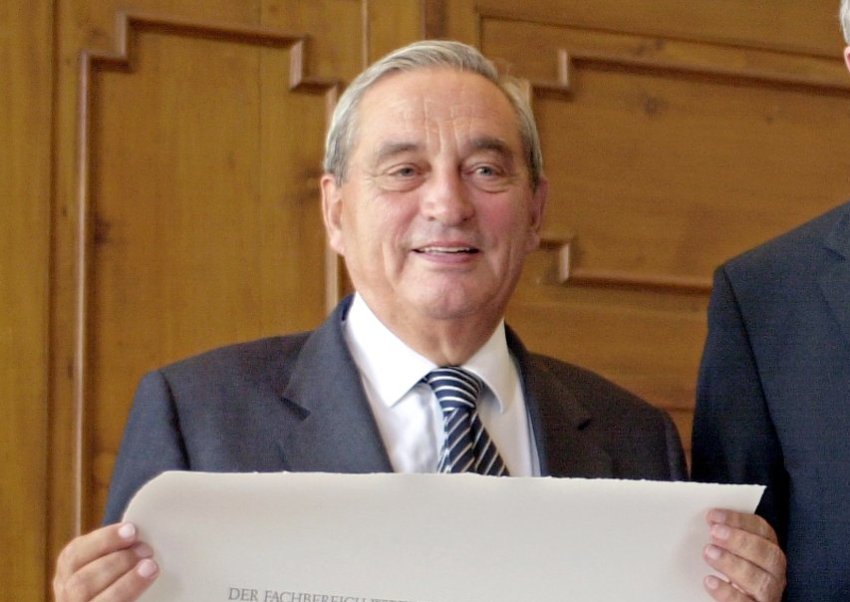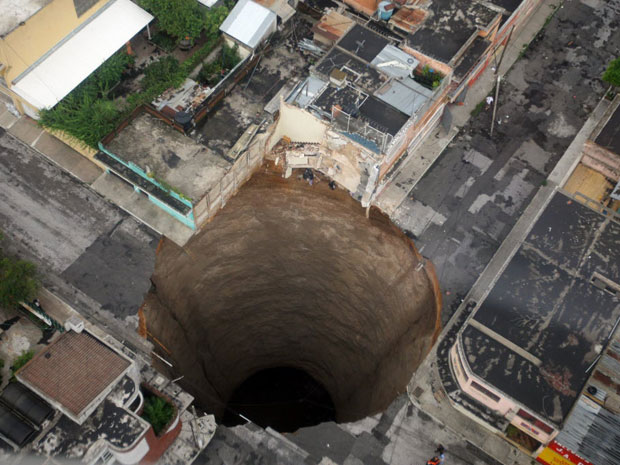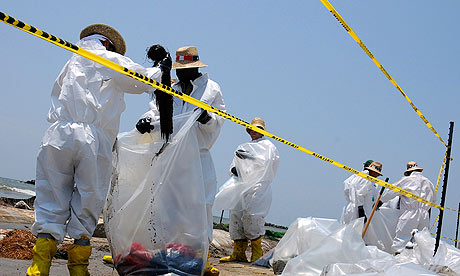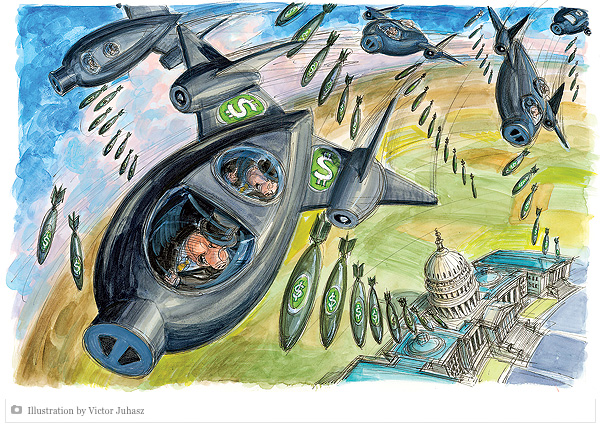Unconstitutional:
– France’s Europe Minister Pierre Lellouche: Eurozone Bailout Violates EU Laws
“Against all its vows, and against an explicit ban within its own constitution, the European Central Bank (ECB) has become involved in financing states.”

Karl Otto Pöhl was head of the German central bank, the Bundesbank, from 1980 to 1991.
Bailout Plan Is All About ‘Rescuing Banks and Rich Greeks’
The 750 billion euro package the European Union passed last week to prop up the common currency has been heavily criticized in Germany. Former Bundesbank head Karl Otto Pöhl told SPIEGEL that Greece may ultimately have to opt out, and that the foundation of the euro has been fundamentally weakened.
SPIEGEL: Mr Pöhl, are you still investing in the euro — or has the European common currency become too unstable of late?
Pöhl: I still have money in euros, but the question is justified. There is still danger that the euro will become a weak currency.
SPIEGEL: The exchange rate with the dollar is still close to $1.25. What’s the problem?
Pöhl: The foundation of the euro has fundamentally changed as a result of the decision by euro-zone governments to transform themselves into a transfer union. That is a violation of every rule. In the treaties governing the functioning of the European Union, it explicitly states that no country is liable for the debts of any other. But what we are doing right now, is exactly that. Added to this is the fact that, against all its vows, and against an explicit ban within its own constitution, the European Central Bank (ECB) has become involved in financing states. Obviously, all of that will have an impact.
SPIEGEL: What do you think will happen?
Pöhl: The euro has already sunk in value against a whole list of other currencies. This trend could continue, because what we have basically done is guarantee a long line of weaker currencies that never should have been allowed to become part of the euro.
SPIEGEL: The German government has said that there was no alternative to the rescue package for Greece, nor to that for other debt-laden countries.
Pöhl: I don’t believe that. Of course there were alternatives. For instance, never having allowed Greece to become part of the euro zone in the first place.
SPIEGEL: That may be true. But that was a mistake made years ago.
Pöhl: All the same, it was a mistake. That much is completely clear. I would also have expected the (European) Commission and the ECB to intervene far earlier. They must have realized that a small, indeed a tiny, country like Greece, one with no industrial base, would never be in a position to pay back €300 billion worth of debt.
SPIEGEL: According to the rescue plan, it’s actually €350 billion …
Pöhl: … which that country has even less chance of paying back. Without a “haircut,” a partial debt waiver, it cannot and will not ever happen. So why not immediately? That would have been one alternative. The European Union should have declared half a year ago — or even earlier — that Greek debt needed restructuring.
SPIEGEL: But according to Chancellor Angela Merkel, that would have led to a domino effect, with repercussions for other European states facing debt crises of their own.
Pöhl: I do not believe that. I think it was about something altogether different.
SPIEGEL: Such as?
Pöhl: It was about protecting German banks, but especially the French banks, from debt write offs. On the day that the rescue package was agreed on, shares of French banks rose by up to 24 percent. Looking at that, you can see what this was really about — namely, rescuing the banks and the rich Greeks.
Read moreFormer Bundesbank Head Karl Otto Pöhl: Bailout Plan Is All About ‘Rescuing Banks and Rich Greeks’




